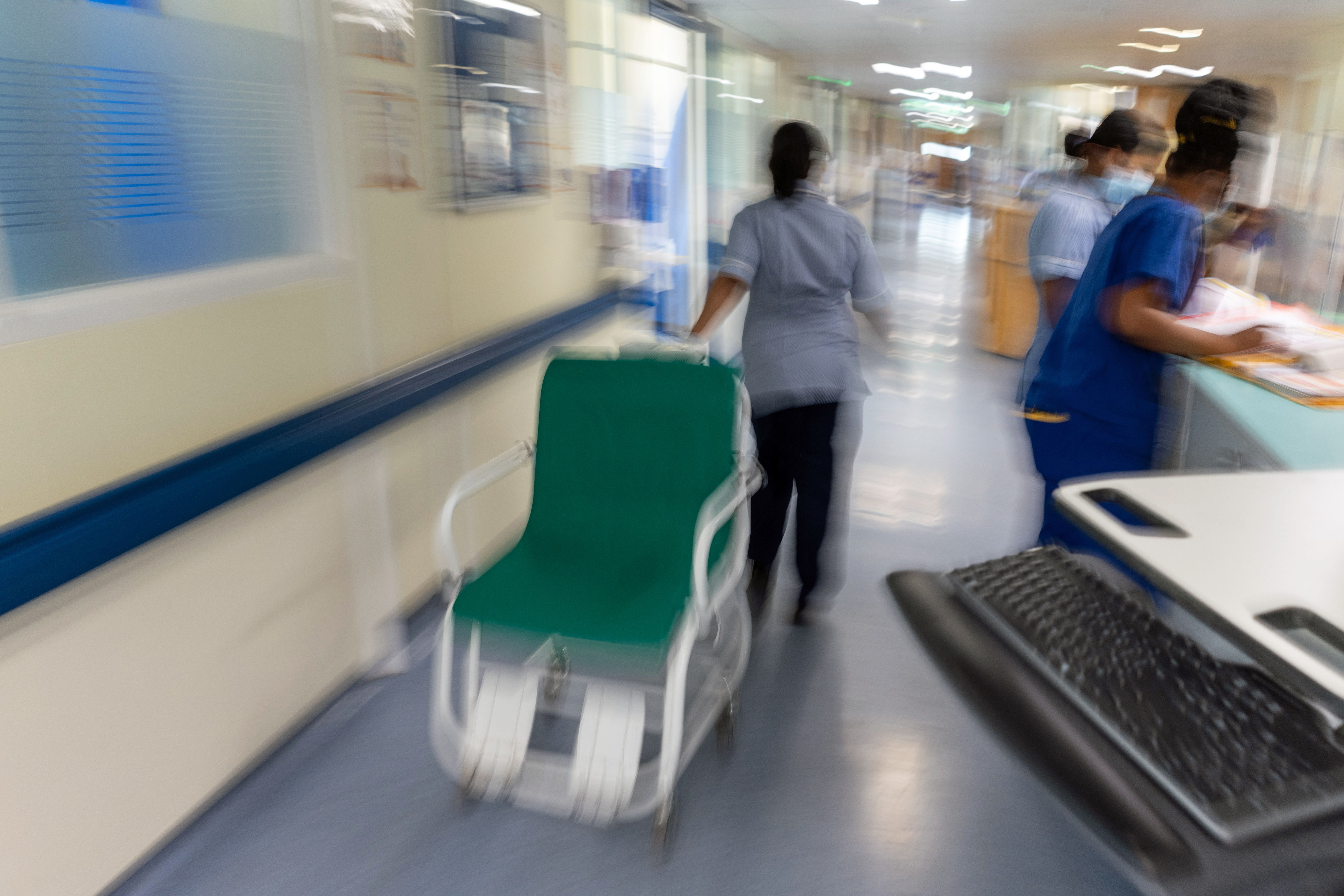AI analysis could help speed up heart failure detection, research suggests
It is estimated that more than a million people in the UK are living with heart failure.

Using AI to interpret images from a handheld ultrasound device could help speed up detection of heart failure, new research suggests.
Scientists found that heart ultrasound images interpreted using AI, including those taken with a handheld device, are as effective as using a typical ultrasound machine operated by an expert in measuring the pumping action of the organ.
However, while a standard analysis of an echocardiogram with a human operator takes around 30 minutes, the AI is able to interpret the images in just one minute.
Researchers highlighted that this is a huge reduction in clinical time and said it has the potential to significantly speed up heart failure diagnosis waiting times.
Our breaking new OPERA results show that investing in AI in healthcare could offer remarkable benefits to both patients and the NHS
The findings come from the OPERA study, a collaboration between the University of Glasgow, AstraZeneca, NHS Greater Glasgow & Clyde and NHS Golden Jubilee to assess the effectiveness of AI technology in patients with heart failure.
Dr Ross Campbell, from the University of Glasgow, said: “Our breaking new OPERA results show that investing in AI in healthcare could offer remarkable benefits to both patients and the NHS.
“We have shown that AI can interpret echocardiogram images accurately, and given AI can produce a report in a fraction of the time, this could really make a difference in allowing us to make early diagnosis of heart failure possible.
“OPERA has been made possible by the collaboration between the University of Glasgow, AstraZeneca, Lenus Health and the NHS, who have helped us demonstrate how heart failure diagnosis could be improved for patients around the world.”
It is estimated that more than a million people in the UK are living with heart failure, a serious condition where the heart is unable to pump blood around the body properly.
The latest OPERA results show that using AI to interpret echocardiogram images could allow early diagnosis, according to the researchers.
Faster analysis of scans could also help the NHS reduce waiting times and help to alleviate pressures on the healthcare system.
Dr Ed Piper, medical and scientific affairs director at AstraZeneca UK, said: “The results of the OPERA study show how innovative technology, including AI, has the potential to streamline the diagnosis of heart failure so that patients receive the care they need at the earliest opportunity to improve their outcomes.
“AstraZeneca is proud to have collaborated with our partners in Glasgow under the Memorandum of Understanding to deliver these exciting data that will help transform future clinical practice in heart failure diagnosis.”
The findings were presented at the European Society of Cardiology (ESC) Conference in Amsterdam which ended on Monday.
Bookmark popover
Removed from bookmarks